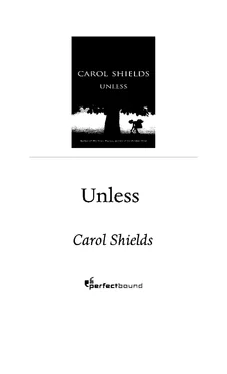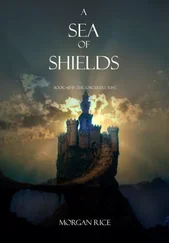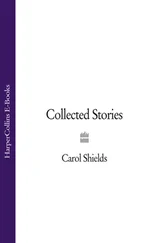Carol Shields - Unless
Здесь есть возможность читать онлайн «Carol Shields - Unless» — ознакомительный отрывок электронной книги совершенно бесплатно, а после прочтения отрывка купить полную версию. В некоторых случаях можно слушать аудио, скачать через торрент в формате fb2 и присутствует краткое содержание. Жанр: Современная проза, на английском языке. Описание произведения, (предисловие) а так же отзывы посетителей доступны на портале библиотеки ЛибКат.
- Название:Unless
- Автор:
- Жанр:
- Год:неизвестен
- ISBN:нет данных
- Рейтинг книги:4 / 5. Голосов: 1
-
Избранное:Добавить в избранное
- Отзывы:
-
Ваша оценка:
- 80
- 1
- 2
- 3
- 4
- 5
Unless: краткое содержание, описание и аннотация
Предлагаем к чтению аннотацию, описание, краткое содержание или предисловие (зависит от того, что написал сам автор книги «Unless»). Если вы не нашли необходимую информацию о книге — напишите в комментариях, мы постараемся отыскать её.
Unless — читать онлайн ознакомительный отрывок
Ниже представлен текст книги, разбитый по страницам. Система сохранения места последней прочитанной страницы, позволяет с удобством читать онлайн бесплатно книгу «Unless», без необходимости каждый раз заново искать на чём Вы остановились. Поставьте закладку, и сможете в любой момент перейти на страницу, на которой закончили чтение.
Интервал:
Закладка:
It wasn’t until we’d finished our salads and ordered our coffee that I realized she hadn’t mentioned the book at all, nor had she congratulated me on the Offenden Prize. But perhaps she didn’t know. The notice in the New York Times had been tiny. Anyone could have missed it.
It became suddenly important that I let her know about the prize. It was as strong as the need to urinate or swallow. How could I work it into the conversation? — maybe say something about Tom and how he was thinking of putting a new roof on our barn, and that the Offenden money would come in handy. Drop it in casually. Easily done.
“Right!” she said in her hearty, unimpeded voice, letting me know she already knew.
“Beginning, middle, end.” She grinned then.
She talked about her “stuff,” by which she meant her writing. She made it sound like a sack of kapok. There were always little linguistic surprises in her work, but more interesting to me were the bits of the world she brings to what she writes, observations or incongruities or some sideways conjecture. She understood their value. “He likes the fact that my stuff is off-centre and steers a random course,” she said of an admirer. Her eyes looked slightly pink at the corners, but it may have been a reflection from the headwrap, which cut a sharp line across her forehead.
She had always claimed she had little imagination, that she wrote out of the material of her own life, but that she was forever on the lookout for what she called putty. By this she meant the arbitrary, the odd, the ordinary, the mucilage of daily life that cements our genuine moments of being. I’ve seen her do wonderful riffs on buttonholes, for instance, the way they shred over time, especially on cheap clothes. And a brilliant piece on bevelled mirrors, and another on the smell of a certain set of wooden stairs from her childhood, wax and wood and reassuring cleanliness accumulating at the side of the story but not claiming any importance for itself.
She looked sad over her coffee, older than I’d remembered, and I could tell she was disappointed in me for some reason. One can always feel this sense of non-delivery. Every encounter sets us up for success or failure. It occurred to me I might offer Gwen a piece of putty by telling her about the discovery I had made the day before, that shopping was not what I’d thought, that it could become a mission, even an art if one persevered. I had had a shopping item in mind; I had been presented with an unasked-for block of time; it might be possible not only to imagine this artifact but to realize it.
“How many boutiques did you say you went into?” she asked, and I knew I had interested her at last.
“Twenty,” I said. “Or thereabouts.”
“Incredible.”
“But it was worth it. It wasn’t when I started out, but it became more and more worth it as the afternoon went on.”
“Why?” she asked slowly. I could tell she was trying to twinkle a gram of gratitude at me, but she was closer to crying.
“To see if it existed, this thing I had in mind. This item.”
“And it did.”
“Yes.”
To prove my point I reached into my tote bag and pulled out the pale, puffy boutique bag. I unrolled the pink tissue paper on the table and showed her the scarf.
She lifted it against her face. Tears glinted in her eyes. “It’s just that it’s so beautiful,” she said. And then she said, “Finding it, it’s almost as though you made it. You invented it, created it out of your imagination.”
I almost cried myself. I hadn’t expected anyone to understand how I felt.
I watched her roll the scarf back into the fragile paper. She took her time, tucking in the edges with her fingertips. Then she slipped the parcel into her plastic bag, tears spilling freely now, wetting the pink kernel of her face. “Thank you, darling Reta, thank you. You don’t know what you’ve given me today.”
But I did, I did.
But what does it amount to? A scarf, half an ounce of silk, maybe less, floating free in the world, making someone happy, this person or that person, it doesn’t matter. I looked at Gwen/
Gwendolyn, my old friend, and then down at my hands, a little garnet ring, a gift from Tom back in the seventies, one week after we met. I thought of my three daughters and my mother-in-law, and my own dead mother with her slack charms and the need she had to relax by painting china. Not one of us was going to get what we wanted. I had suspected this for years, and now I believe that Norah half knows the big female secret of wanting and not getting.
Norah, the brave soldier. Imagine someone writing a play called Death of a Saleswoman.
What a joke. We’re so transparently in need of shoring up that we’re asking ourselves questions, endlessly, but not nearly sternly enough. The world isn’t ready for us yet; it hurts me to say that. We’re too soft in our tissues, even you, Danielle Westerman, feminist pioneer, Holocaust survivor, cynic, and genius. Even you, Ms. Reta Winters, with your new old, useless knowledge, your erstwhile charm. We are too kind, too willing — too unwilling too — reaching out blindly with a grasping hand but not knowing how to ask for what we don’t even know we want.
Instead
Ineed to speak further about this problem of women, how they are dismissed and excluded from the most primary of entitlements.
But we’ve come so far; that’s the thinking. So far compared with fifty or a hundred years ago. Well, no, we’ve arrived at the new millennium and we haven’t “arrived” at all. We’ve been sent over to the side pocket of the snooker table and made to disappear. No one is so blind as not to recognize the power of the strong over the weak and, following that, the likelihood of defeat. It was only last Sunday, I think, that old What’s-his-crust was on Channel 2, the Literary Lights program, he of the square, bony, well-made head and the transparent ears clasped tight to his skull, and the look of being eighty and impish about it.
“Who would you say your major influences were?” he was asked.
“Hmm.” This required some careful literary thought, but not too much thought. “Chekhov, definitely,” he replied, his face softening to dough. “And Hardy. And, of course, Proust, that goes without saying.”
What’s the matter with this man? Hasn’t he ever heard of Virginia Woolf? Isn’t he brave enough to pronounce the names: Danielle Westerman or Iris Murdoch? But of course it’s not a matter of bravery in his case; the idea simply does not occur.
But, wait! — here comes the “woman” question, delivered by the rumpled, anxious chairperson, coiffed, suited, sweating, consulting her script with a swift, fearful eye: “What about (pause) women writers? Surely women have reshaped the discourse of our century.”
“Hmm.” More heavy thinking, more doughy pinching of the eyebrow between thumb and forefinger, then he looks with hope into the camera and says, “Now the nineteenth century — there were some interesting women writers back then.” Yes, but. The program is over in thirty seconds and he’s not about to bring a woman’ s name to his stately fadeout.
Women have been impeded by their generative responsibility, he might have gone on to say had he been given time or encouragement from the chairperson, or had he been sufficiently embarrassed at drawing such an immense public blank. Women were busy bearing children, busy gathering edible grasses or bulbs. You see, he could have said, his little finger waving, it comes down to biology and destiny. Women have been hampered by their biology. Hampered: such a neutral and disingenuous concept and one that deflects blame.
Emma Allen sent me an e-mail from Newfoundland yesterday. She and her daughter and her widowed daughter-in-law were off to a health spa for the weekend, she wrote, and she was looking forward to being utterly “hampered” for a change.
Читать дальшеИнтервал:
Закладка:
Похожие книги на «Unless»
Представляем Вашему вниманию похожие книги на «Unless» списком для выбора. Мы отобрали схожую по названию и смыслу литературу в надежде предоставить читателям больше вариантов отыскать новые, интересные, ещё непрочитанные произведения.
Обсуждение, отзывы о книге «Unless» и просто собственные мнения читателей. Оставьте ваши комментарии, напишите, что Вы думаете о произведении, его смысле или главных героях. Укажите что конкретно понравилось, а что нет, и почему Вы так считаете.












